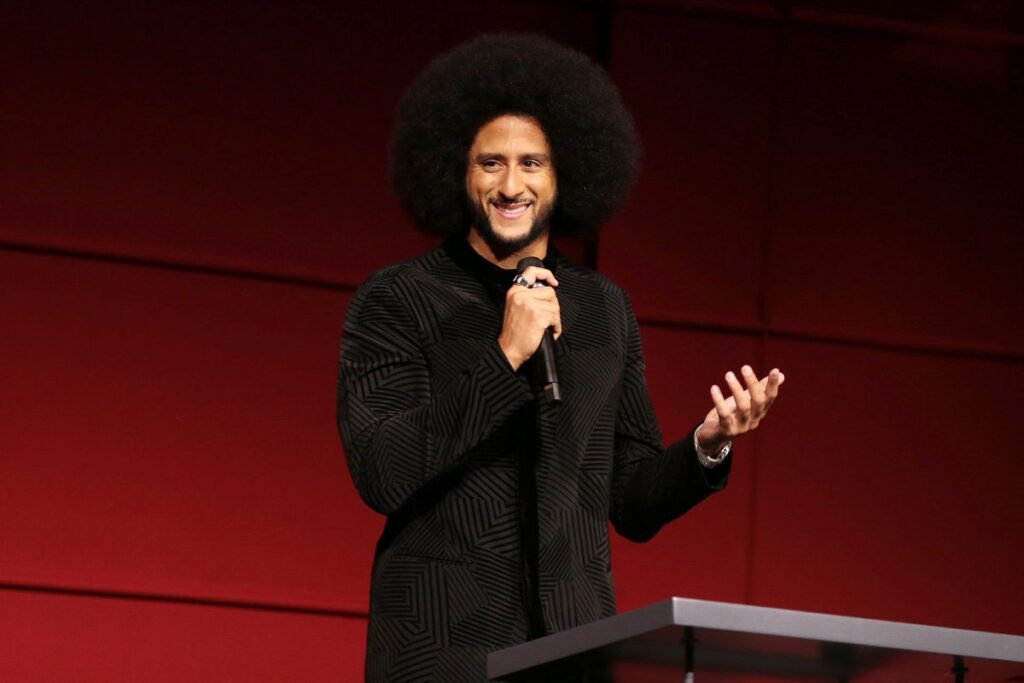
On Aug. 14, 2016, Colin Kaeprnick embarked on what would become one of the most influential protests in American history. The protest would go unnoticed that day, and unnoticed again a week later during an Aug. 20 game, but on Aug. 26, after a preseason loss to the Green Bay Packers, a viral tweet made the world aware of Kaepernick’s actions, and he was forced to face the media and explain his decision to sit during the national anthem.
His explanation, one often quoted but seldom understood, was that he sat in protest of the oppression of people of color and ongoing issues with police brutality.
Kaepernick’s actions and the conversations they created reverberated not only throughout the rest of the NFL, but the entire world. Teammates, other players, celebrities and government officials alike commented on the situation, all equally impassioned, but rarely affable. However, no matter what side of the coin one fell on, Kaepernick succeeded in bringing light to an important issue on one of America’s brightest stages.
On the three-year anniversary of the protest, Kaepernick himself posted a tweet reflecting on his efforts. In the tweet, Kaepernick stated, “I continue to work and stand with the people in our fight for liberation, despite those who are trying to erase the movement. The movement has always lived with the people!”
Now, six years later, Kaepernick’s activism efforts haven’t slowed down a bit. In 2019, Kaepernick starred in Nike’s Emmy winning “Dream Crazy” commercial, notably stating the words, “Believe in something. Even if it means sacrificing everything.” His words, amongst other athletes known for their social justice activism, collectively made up Nike’s message to “dream crazy.” His children’s book, “I Color Myself Different,” a book he describes as “a story about identity, adoption, & the power of self-love” is a New York Times Best Seller, and an ode to the sanctity of Black and brown lives. Additionally, in July 2020, Kaepernick signed a deal with Disney to develop documentaries and other projects addressing social justice issues.
As a settlement check for Kaepernick and six years of activism went by, what tangible changes have there been on the issues that Kaepernick fought so valiantly for, or even in the ways the athletes themselves are treated?
According to senior political science major, sociology minor Donroy Ferdinand Jr., there is still much work to be done. In an interview with The Hilltop, Ferdinand Jr., a scholar who has spent significant time studying the servile conditions of many of today’s sports leagues and the commodification of the Black athlete, when asked about the progress Kaepernick made during his protests, said, “We are past the point of awareness of the issue…more needs to be done.”
“Racial inequality is still going on. Police brutality is still a thing,” Ferdinand Jr. continued. “NFL football really is the perfect microcosm of racial capitalism. It [the NFL] is indicative of what is going on in our larger society, that being Black people are exploited for the gain of others. That is not to say that taking a knee did not bring light to the public to these issues, however it is to say that action needs to be taken to actually address them.”
Without a doubt, Kaepernick’s protests were monumental in the push for social justice in the world. However, even now, there is still much to be done to achieve the things Kaepernick kneeled for all those years ago.
Copy edited by Chanice McClover-Lee









